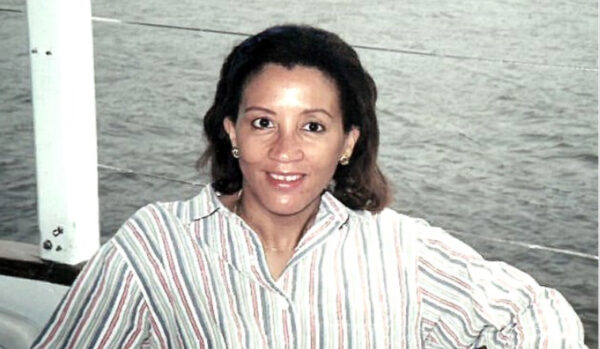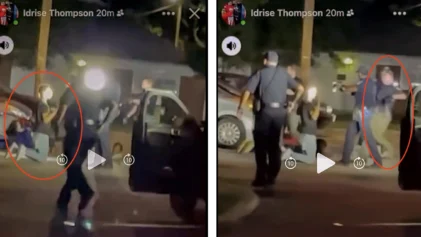A pioneer in national security who guarded not only the family members of former President Gerald Ford but also former President Jimmy Carter has died at age 71.
On Feb. 21, Zandra Iona Flemister, the first Black woman to be hired by the U.S. Secret Service, passed away, according to reports. During her life, in addition to serving her country, she participated with over 100 Black agents and former agents in a class-action lawsuit that sought to expose to the country the culture of racial discrimination that existed within the Secret Service.
Despite filing a complaint against the agency, she is still remembered for her outstanding work and the impact her service made on the nation.

U.S. Secret Service director Kimberly Cheatle released a statement regarding her death, saying she was “a trailblazer who dedicated her life to service and inspired a future generation of agents.”
Flemister was an Army brat, born Nov. 21, 1951, in Frankfurt, West Germany, while her father, a U.S. Army sergeant, was serving abroad. Her mother also worked for the U.S. government, taking a job as a microfilm technician.
During her early years, the family moved to France. Her parents separated when she was 5 years old, and her mother returned to the United States and set up a home for the small family in Connecticut.
After high school, she attended Northeastern University in Boston, graduating with a bachelor’s degree in political science in 1973.
Upon graduation, she started looking for work — hoping to land a job serving her country.
“It was government service for which I had prepared,” she said based on the influence of her parents, “and to government service, I was destined to go.”
She met a recruiter at a job fair and set her sights on applying for a Secret Service job — not knowing that no one like her had ever served with the agency.
Flemister was hired at the Secret Service in 1974 and spent four years in the federal law enforcement agency and the Department of Homeland Security before transferring to the foreign service.
As the first Black female secret service agent, she says she experienced discrimination as she trailblazed her way in the field, breaking glass ceilings for women and Black people after the Civil Rights Movement.
According to The Washington Post, the security professional always felt the weight of being the first and labored to serve despite enduring actions of bigotry from her superiors and colleagues. During the early part of her career, she was assigned to the most unwanted positions and roles in the agency
She would be relegated to covering the details of the president, vice president and other dignitaries and their families to covering forgery, counterfeiting and other financial crimes.
Flemister took pride in protecting the first families, especially the young daughters that both Ford and Carter had during her tenure.
According to John Collinge, her husband of 42 years and the father of her son Samuel, she also took pride in “her skill at safeguarding Gerald Ford’s teenage daughter Susan “during dates without being obtrusive.”
She would attend school with Amy Carter and would sit discreetly in the back of her Thaddeus Stevens public elementary school classroom while America’s first daughter received her lessons.
Once another agent in the Washington field office questioned out loud after pointing at her, “Whose prisoner is she?” She said she was “embarrassed and humiliated.”
To add insult to injury, one time a co-worker taped a picture of a gorilla on her official ID card, covering her photograph, as a cruel practical joke.
Even when she asked about elevating her assignments, hoping to be invited to one of the better-paying security details, she was told she had to cut her afro hairstyle.
Flemister not only experienced personal acts of racism but endured systemic racism and cultural bigotry in her time with the agency.
White agents at the time threw the N-word around loosely in her presence, with no regard for the station.
Reports recall a time Flemister was working with presidents of Senegal and Grenada during one of their visits to the United States and heard White special agents calling the two Black leaders the N-word.
There were times when she would be allowed to serve the nation at important events.
She’d written previously that believed those opportunities were “solely for exhibition” and that at those times she felt like the “show’ African American female agent.”
“I remained in the Secret Service because I wanted to be a trailblazer for other African-American women,” she said in a 2000 affidavit filed in support of a class-action lawsuit that claimed the agency has historically practiced racial discrimination.
She wrote, “With my requests for transfers to career-enhancing squads consistently denied, my credibility and competency constantly questioned, and the common use of racial epithets in my presence. I saw the handwriting on the wall: Because of my race I would never be allowed to have a successful career in the Secret Service.”
In 1978, she took a job with the Foreign Service. In this capacity, she dedicated her life to protecting Americans abroad, doing so despite having to take a drastic pay cut.
Flemister served the State Department for more than three decades, working all over the world. She held the position of consul general in Islamabad, Pakistan, and was also stationed in the nation’s capital as the senior State Department representative at the FBI’s Terrorist Screening Center.
In 2011, at 59, she was forced into early retirement after early signs of dementia.
According to an article Collinge wrote for the American Foreign Service, they started to see inklings of memory loss as far back as 2005.
“In 2005 as she prepared for an assignment to Pakistan she was struggling with her memory. We thought it was stress, and she started mental exercises and medicines to cope,” he wrote.
“I noticed some slippage in Zandra’s spelling (an early indicator, had we known), but she continued to perform at a high level,” he remembered. “In Islamabad, she earned Ambassador Ryan Crocker’s respect, won a Superior Honor Award for her role in the aftermath of the October 2005 South Asia Earthquake, handled two very sensitive visa cases under congressional and press scrutiny, and oversaw the administrative arrangements after a fatal terrorist attack.”
Things like this continued until 2010, “having struggled while serving as State’s deputy at the Terrorist Screening Center, she knew that another foreign assignment was out of the question. Only a few months into a tour at the Board of Examiners, she knew she could not master the job and made the painful decision to request retirement.”
Because of the decline, she was unable to participate in the lawsuit she was crucial to providing context for.
In 2017, the plaintiffs in the case settled their complaint with the Secret Service for $24 million.
Flemister reportedly died due to a respiratory failure that was related to her Alzheimer’s disease.


